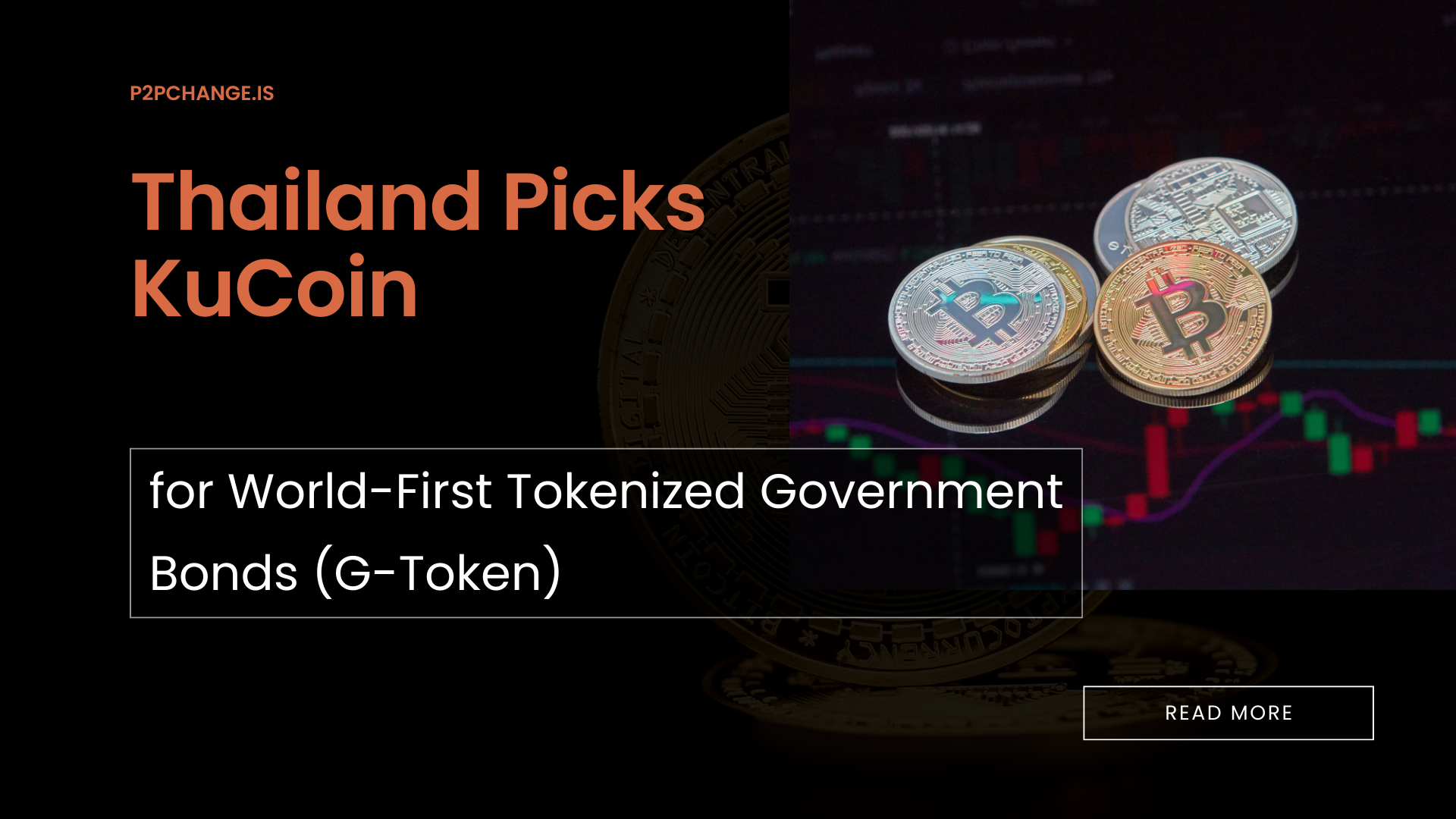
Thailand’s Ministry of Finance has chosen KuCoin as the first international exchange partner for G-Token, the country’s program to issue tokenized government bonds on licensed digital-asset venues. KuCoin says its locally regulated arm, KuCoin Thailand, will handle subscription, redemption, and listing alongside domestic partners XSpring Digital, SIX Network, and Krungthai XSpring. The initial pilot totals 5 billion baht (~US$153 million)and is aimed at widening retail access to sovereign debt.
What exactly is G-Token?
G-Token (short for “Government Token”) is a government-backed digital investment token that represents Thai sovereign debt under the Public Debt Management Act. The initiative was approved by the Cabinet on May 13, 2025, with authorities positioning it as a new, more accessible channel for public investment in government securities. Thailand’s securities regulator and local press have since outlined the framework, including the plan for a 5-billion-baht pilot and rulemaking to support distribution through licensed exchanges.
Why KuCoin—and why now?
KuCoin entered Thailand this year by acquiring the country’s first SEC-supervised token platform (ERX) and relaunching it as KuCoin Thailand, which operates under the Thai SEC’s oversight. Today’s announcement positions KuCoin as the first global exchange to support the G-Token rollout, with scope to assist on secondary-market liquidity and potential future listings beyond Thailand—subject to regulatory approval.
The exchange framed the project as a landmark for real-world asset (RWA) tokenization: government bonds—long considered safe, low-risk instruments—are being fractionalized and distributed via blockchain rails, potentially lowering minimums and improving settlement efficiency for small investors.
How it will work (at launch)
- Primary distribution: The first G-Tokens will be offered on licensed Thai exchanges. KuCoin Thailand will facilitate subscription and redemption in coordination with XSpring Digital, SIX Network and Krungthai XSpring.
- Secondary trading: After issuance, G-Tokens are expected to trade on local digital-asset venues. A future global listing on KuCoin.com is possible, pending clearances from regulators.
- Investor proposition: Authorities and media have said the product aims to offer returns higher than bank deposits, with the principal and interest obligations backed by the Thai government—though investors should still read the final terms and risk factors.
Timeline and policy backdrop
- May 13, 2025: The Cabinet approves G-Token as a new borrowing tool under the Public Debt Management Act; officials signal an initial 5-billion-baht pilot.
- July 2025: Thai authorities publish clarifications and rules for the upcoming launch; Thai SEC communications describe G-Token as a government loan-raising instrument governed by existing public-debt law.
- August 27, 2025: KuCoin announces it is the first global exchange supporting the program; partners and operational roles are confirmed.
Why this matters
For Thailand: G-Token could modernize sovereign funding while supporting financial inclusion, letting retail investors buy digital sovereign bonds in smaller denominations via licensed digital-asset exchanges. Authorities have pitched the program as a way to open “quality investments” to the public and improve efficiency in state fundraising.
For crypto and RWAs: This is among the most prominent RWA tokenization efforts by a national government. If successful, it could set benchmarks for compliance, custody, and secondary trading that other issuers study—especially in Asia, where governments are experimenting with digital bond formats.
For KuCoin: The move strengthens KuCoin’s regulated footprint in Southeast Asia and could attract fixed-income–minded users who previously had little reason to open a crypto exchange account. The exchange’s role also underscores how licensed local entities (KuCoin Thailand) can bridge traditional finance and global crypto platforms within a clear legal perimeter.
What to watch next
- Final product terms: Coupon, tenor, minimum ticket size, tax treatment, and settlement mechanics will determine investor uptake. Keep an eye on the PDMO and Thai SEC channels for official details.
- Secondary-market liquidity: After the offering, trading depth and spreads on licensed exchanges (and any future international venue) will reveal real investor demand.
- Regulatory exportability: Whether other jurisdictions accept or replicate a Thai-style tokenized government bond will influence cross-border listings and the growth of a standardized RWA market.